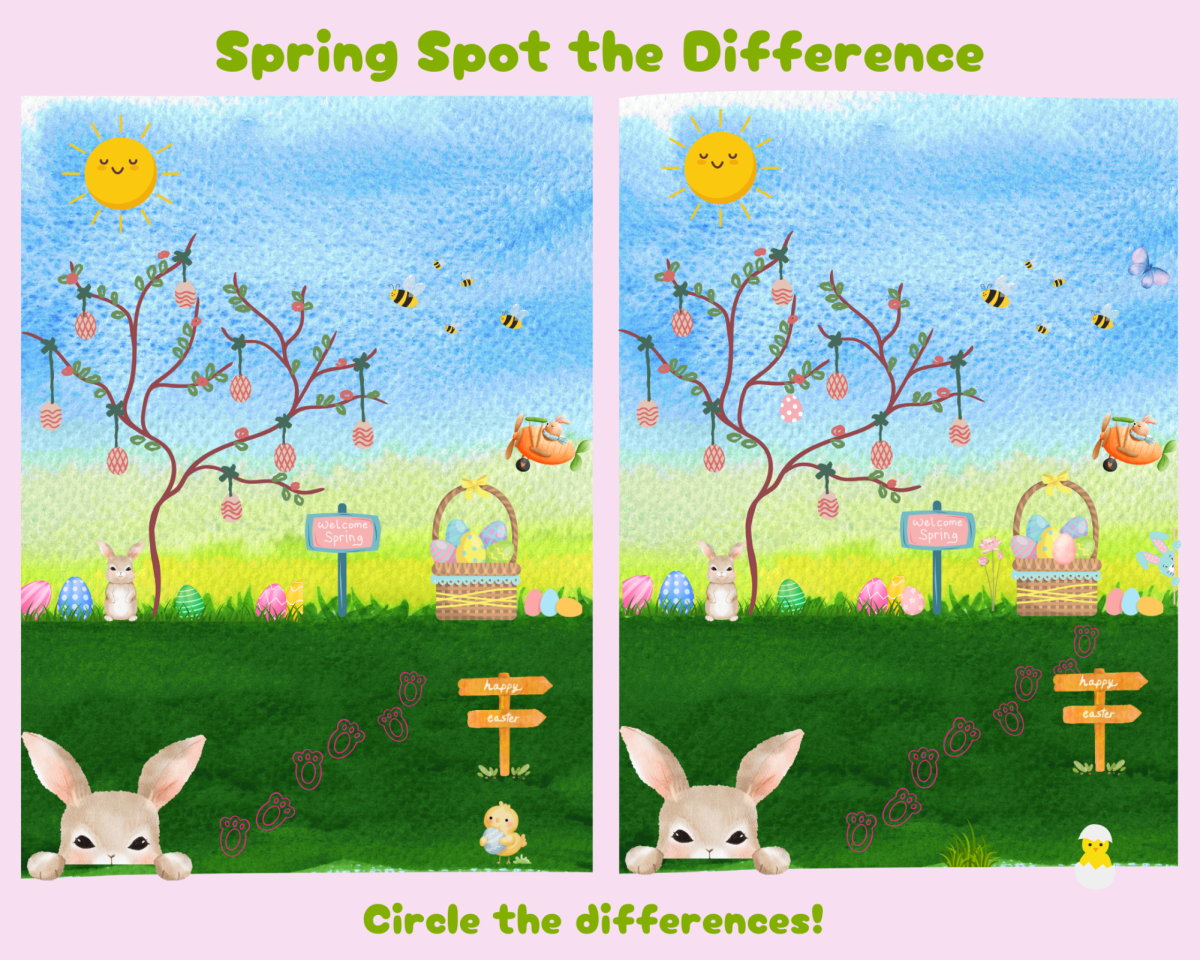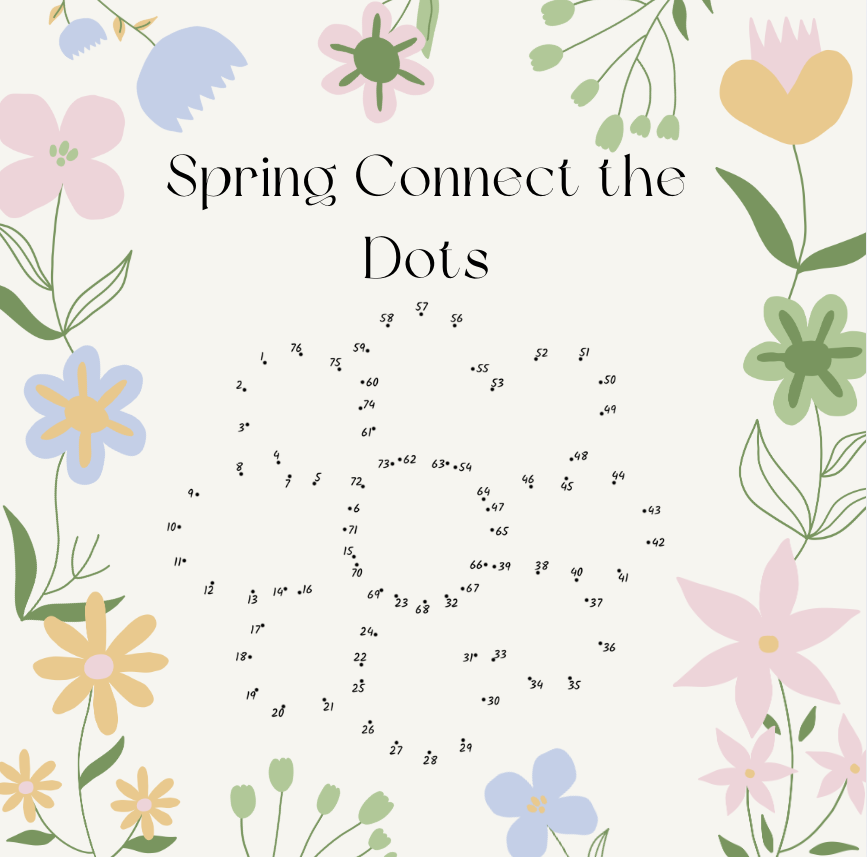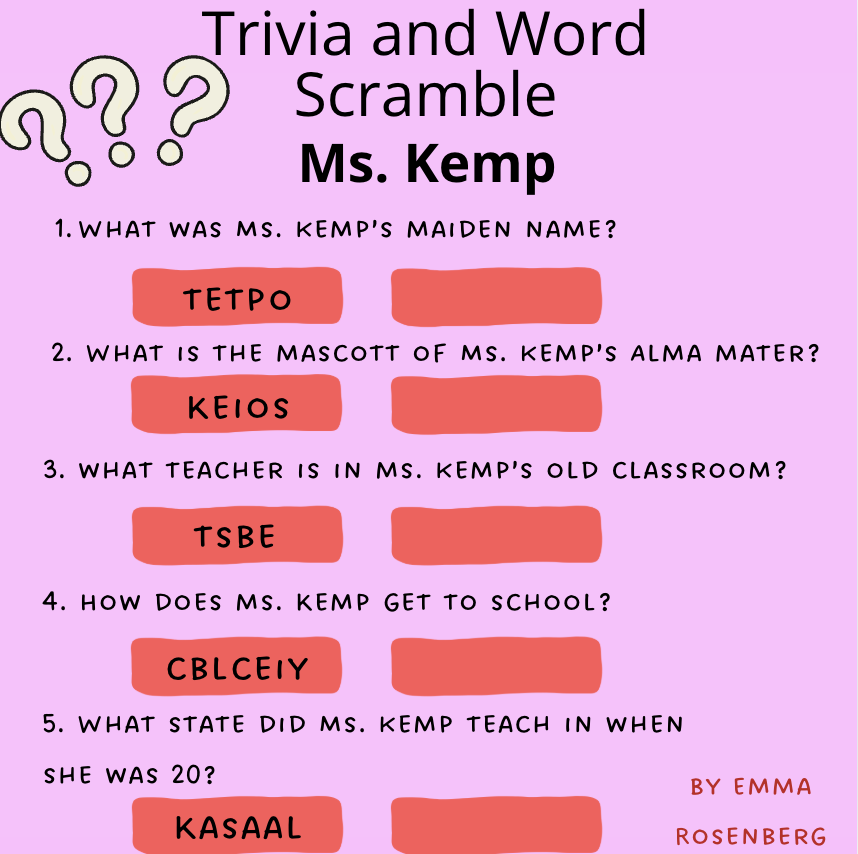This story has been updated to reflect that while at the Jasmine School squat, Leland was an independent volunteer who was implementing Schoolbox Project guidelines. The organization was not officially affiliated with the squat.
Four years ago, Sidra lived a life not very different than that of a soon-to-be Redwood student. She was 10 years old, went to school everyday and dreamed of becoming a surgeon when she grew up. But within a few short years, Sidra’s childhood was no longer anything close to normal.
Sidra lived in Damascus, Syria, the country’s capital that came under control of the Free Syrian Army in 2012. Sidra asked for her last name to not be used as it could affect her asylum request.
“Life in Syria was really nice before the war,” said Sidra, now 13 years old, through a translator over Skype. “Once the war started there was a lot of fear. Every time someone would leave the house, we would be scared they wouldn’t come back.”

Like many other Syrian refugees, Sidra was caught in the middle of a three-way civil war between President Bashar al-Assad’s regime, the Free Syrian Army and the Islamic State of the Levant and Syria (ISIS or Daesh).
“None of them are good,” Sidra said. “Each one of them hits the other and we are stuck in the middle. We don’t care. It’s not our war but it comes to us.”
After enduring years of fighting, including the bombing of her school and the stoning to death of her uncle for swearing in the streets, Sidra’s family finally decided to flee to Germany.
Today, Sidra lives in the Jasmine School squat, an unofficial refugee camp located in Athens, Greece, unable to reach Germany because the Balkan borders have closed.
Sidra’s story is just one of many that Redwood Academic Workshop teacher Mary Beth Leland heard while volunteering in this squat for six weeks this past summer.
While waiting to set up a school in a formal refugee camp the Schoolbox Project, Leland worked to open a school inside of the squat.
The Schoolbox Project, a nonprofit based in the Bay Area, builds portable schoolhouses that can move with refugees from camp to camp. Each schoolhouse comes equipped with power stations, school supplies and arts and crafts, which provide an opportunity for creativity and emotional expression during a time of trauma, according to Belle Sweeney, the organization’s executive director.
In addition, the organization trains volunteers to teach classes with trauma-informed principles, according to Sweeney.
Between 200 and 400 refugees lived in the squat, an abandoned, 50-room school that they broke into to make their temporary home, according to Leland.
The residents came from all parts of Syria, each with a background and story just as harrowing as Sidra’s.
“[The refugees] had lives and jobs and houses [in Syria],” Leland said. “I met someone who was a teacher, some business owners, a couple of women in their early 20s who were university students. [I met a student who] stopped going to school because ISIS had come onto her bus to kidnap women, and she was too scared to leave her house after that.”
Many refugees at the camp made the final decision to leave Syria as the civilian death toll continued to rise and their homes and schools were destroyed by bombs.
“Some of them knew a different person everyday that was killed in Syria,” Leland said.
Leland made the decision to go to Greece at the end of the summer of 2015 after seeing images of boats and people drowning.
“It got me in the gut and in the soul where I just couldn’t believe that that was happening somewhere in this world,” Leland said. “In my head I kept replaying what it must be like to run for your life, get on a boat and be in the middle of the sea and to have it start sinking. None of that has to happen.”
Before leaving for Athens, Leland raised $13,000 to be put towards building another Schoolbox. https://vimeo.com/189952974
In April, Leland started to organize fundraising dinners with friends of friends where she would speak about the crisis and the work that she planned to do in Greece. Leland also created an online auction, spoke at events, posted a “YouCaring” crowdfunding page on Facebook and sold crêpes to donate the profits.
“Every year [my friends and I] do a fundraiser called Planet of the Crêpes where we sell crêpes in our driveway. The price is whatever you want to donate, and every year we have a different cause that we donate to,” Leland said.
By the time she went to Greece, hundreds of people had donated to Leland’s fundraiser and her entire community knew about her trip, according to Leland.
Unfortunately, Leland has only been able to spend $3,000 of the $13,000 she raised because the Schoolbox has not yet been built as a result of the instability of the influx of refugees.
“There is so much irregularity and violence in Greece that it has been difficult to get a school set up in a place where it is not going to be destroyed quickly,” Leland said.
Although Leland went to Greece with the intention of helping to build a schoolhouse for refugee children, she and the volunteers she worked with decided to convert a few old classrooms in the squat to a school, while waiting to find a permanent location for the new schoolhouse.
“I went there thinking ‘What could be controversial about offering a school to kids?’ but it turns out there are a lot of controversial things,” Leland said.
None of the refugees or volunteers knew if or when the squat would be closed by the Greek police because they were trespassing in an abandoned building, which made it hard to determine how much money should be invested into the school.
“Everyday that we were there we were trespassing, and everyday that we were there we knew that at any point the police might kick everybody out,” Leland said. “It was tricky to figure out how much money and time we [should] invest here when we could spend a few hundred or thousand dollars to get it all up and running and to get furniture and desks and to paint the walls and books and all that and then at any moment [the police] might close the place down.”
Additionally, some of the residents of the squat argued that for every penny the organization spent on school supplies, they could be buying daily necessities, such as food and clothing, which ran short in the squat.
The squat was also 200 people over capacity and when the day came for the volunteers to paint the rooms that they had set out to be used as classrooms, they had to relocate two families with children lying on the cement floor.
Although the Schoolbox Project did not bring a portable schoolhouse to the Jasmine School squat, Leland and other volunteers offered English, German and Arabic classes for all age levels, in addition to teaching regular school to the children.
For many of the kids, the school offered at the squat was the first time they had had the opportunity to attend school since the Syrian civil war began.
Leland’s happiest moment in Greece was the day the school opened, which the volunteers and refugees came together to celebrate.
“We had a big dance party and the adult men in the community played drums,” Leland said. “The children made speeches, and one of them was supposed to be about hope and education and at the end they tied it all together and said that they were synonymous. You can’t have one without the other.”
Leland admits that some days she wanted the squat to be shut down because of how horrible the conditions were.
“I was in love with the place, I was in love in with the school, I was in love with the kids, but I would pray that someone would come in here and shut it down because the conditions were so awful and smelly and dirty,” Leland said. “But there were other days where we would have parties to celebrate different holidays and we would dance and sing, and it would be the most beautiful thing that I have ever experienced.”
Before leaving for Greece, Leland did not expect the language barrier to significantly affect her volunteer work in the squat, however, upon her arrival she realized she had underestimated the challenge.
“The language barrier was huge and was a lot more serious than I expected. When I went there I was like ‘We’ll figure it out, we’ll draw pictures, we’ll act things out.’ But there were so many moments that [non-Arabic speaking volunteers] were completely disabled by not being able to understand what was going on,” Leland said. “Someone would run up to us speaking fast about something happening that they needed help with, and we would just have no clue what was going on.”

Leland tells the story of a five-year-old girl who came up to her frantically flailing a torch she had made out of paper, rolled up tightly, and lit on fire. At first Leland thought the girl was just being a rebellious rascal playing with fire, so she took the torch out of the little girl’s hand and stamped it out and scolded her for playing with fire, which only made the girl more upset.
A woman who spoke Arabic approached Leland and tried to explain that the little girl smelled fire but the lady couldn’t figure out where the smell was coming from.
“The little hero girl grabbed my hand and brought me to the basement, around a hallway and into a room where there was a little girl lighting fires, holding them up to her face, and burning the skin off of her chin,” Leland recalled. “Besides all of the trauma of watching that, I was like ‘Where am I in the world that I am actually observing this happening?’”
The girl’s mother was in the room watching her daughter burn herself but did nothing, Leland said.
“This is war. We are not in Syria but this is still a warzone. These people are so traumatized that they will watch a kid burn her chin with a fire and just shrug their shoulders,” Leland said.
Leland said that this is just one of the many upsetting experiences that she had in Greece.
“Every day another thing like that happened. I would wake up in the morning and think ‘This is going to be a solid day,’ and then everyday another shocking crisis like that would happen,” Leland said.
Two days before Leland was set to leave for Greece, she broke both of her arms in a mountain biking accident, affecting her ability to do physical work such as painting the classrooms.
Instead, Leland spent much of her time observing the situation and assessing the actions the volunteers and residents could take to improve the living conditions of the squat.
“The first week that I was there I was mostly observing because I didn’t want to be that volunteer who showed up and acted like I know what to do,” Leland said. “I tried to build relationships and talk to people and see what they needed.”
Leland said that at first she thought the squat needed a garden and art or painting classes, but she then began to notice that the bigger issue was that many of the women did not have a voice within the community.
“The men were in charge and the women took care of the kids but they weren’t given much of a voice. Maybe that’s a place where western volunteers are asserting their values, but for better or for worse I suggested that we get the women together and hear what they think is needed,” Leland said.
Upon announcing the creation of the women’s group, Leland expected two or three women to come to the group’s first meeting. However, the meeting ended up being standing room only, with roughly 25 women in attendance, according to Leland.
“In the end of the meeting we made a list of all of the things that they felt were priorities to make the living situation better—which did not include a garden or art classes or any of the other suggestions that I had—but they had better medical supplies, bedding, cleaner bathrooms, more regular meal distributions, hot water,” Leland said.
With the guidance of volunteers, the group narrowed their list down to four, with different women volunteering to lead a group to accomplish a particular goal, including getting medical supplies, mattresses so the residents would no longer have to sleep on cement floor and creating a cleaning schedule.
Leland admits that some days she wanted the squat to be shut down because of how horrible the conditions are.
“I was in love with the place, I was in love in with the school, I was in love with the kids but I would pray that someone would come in here and shut it down because the conditions were so awful and smelly and dirty,” Leland said. “But there were other days where we would have parties to celebrate different holidays and we would dance and sing, and it would be the most beautiful thing that I have ever experienced.”
Leland also recognized that many of the squats are better than the next alternative for refugees: refugee camps run by the Greek military which are already full.
[vimeo id=”189191914″ size=”small”]
In addition, the squat became something of a community center for refugees in Athens.
“Some families had rented their own apartments but eventually would come and hang out at the squat because it became a community,” Leland said.
In addition to teaching classes and organizing a women’s group, Leland also helped organize a group of 15 children ages eight through 16, who named themselves “The Dream Team.”
“[The Dream Team is] a group of students who refused to give up on dreaming and banded together with a promise to keep living, to not wait, to start today and every day with the idea that they must move forward,” Leland said.
Since returning home, Leland has begun a project to publish the stories of The Dream Team in a storybook.
“I wanted to provide a way for the kids to have their voices be heard,” Leland said.
Leland also said that through the act of writing, she hopes the book will provide the kids a way to process the trauma that they have experienced.
The refugees’ stories in the storybook will have several parts: life before the war, what life was like during the war, what their escape was like, what their life is like now and what their dreams for the future are. The focus of the book will be their dreams for the future.
Leland is planning on collecting the stories before she returns to the Jasmine School squat in December, and is currently looking for Redwood students or other community members to act as mentors for the Dream Team throughout the writing process.
International opinion towards refugees has become increasingly hostile, and Leland said that she understands why many Europeans and Americans have isolationist perspectives.
“I understand [the controversy] because we are victims of main-stream media. Even though I don’t agree with [the anti-immigrant perspective], it’s not that I don’t understand that opinion,” Leland said. “They watch the news and see pictures of Muslims next to the word ‘terrorist’ and that’s what they are exposed to. What else are they suppose to know? We weren’t born racist, but we were taught throughout our lives to become racist.”
Since returning to Redwood, Leland, the advisor of Redwood’s Amnesty International chapter, has given presentations to staff, the Yearbook class and the Amnesty International club; which will be organizing a campaign to both raise awareness of Islamophobia and of refugees’ struggles in Greece, according to Leland.
The club, which meets Mondays at lunch, will also be collecting money and school supplies to send to refugees in Greece.
Leland said that she is continuing to raise money for the Schoolbox Project, to which she hopes community members will donate (www.youcaring.com/the-schoolbox-project-561436).









